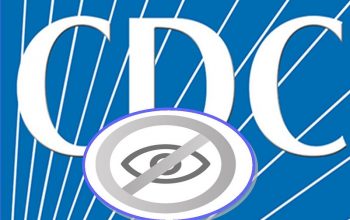by Gordon Jeremiah Berry
The World Health Organization defines patients’ rights as formalized in 1948 under the Universal Declaration of Human Rights under the subsection (Patients’ Rights) to recognize “the inherent dignity” and the equal and unalienable rights of the human family. It is declared that patients’ rights vary in different countries and in jurisdictions, often depending upon prevailing cultural and social norms. In this article we will examine three main points: the Right to Refuse Treatment, the Patient’s Bill of Rights, and Emergency Treatment. 
The Right to Refuse Treatment
Throughout history, the medical practice has changed from physicians making decisions for their patients to one that has been supplanted by promoting patient autonomy. Conflicts still remain as the medical community and those it serves struggle to define their respective roles. Informed consent, is the foundation of patients’ rights. Consent is based on the inviolability of one’s person—meaning that doctors do not have the right to touch or treat a patient without that patient’s approval because the patient is the one who must live with the consequences and possible discomfort caused by treatment.
Informed consent means the patient must be given some basic information about what the doctor proposes to do. Informed consent is considered the most important legal doctrine in patients’ rights. Consent can be given verbally, in writing or by one’s actions. For example, if someone visits a doctor’s office because they are sick, one can assume that a doctor is allowed to touch you by checking for basic symptoms. Consent is not valid if the patient does not understand its meaning or if a patient has been misled.
The Patient’s Bill of Rights
In 1998, the Patient’s Bill of Rights was adopted by the US Advisory Commission on Consumer Protection and Quality. The purpose was helping patients feel more confidence in the US health care system with three main goals. First, it assures that the health care system is fair and it works to meet patients’ needs. Second, it gives patients a way to address any problems they may have. Third, it encourages patients to take an active role in staying or getting healthy.
In addition to that, 8 other areas would be affected as a result.
First, information for patients, the right to accurate and easily-understood information about your health, health care professionals, and health care facilities.
Second, a choice of providers and plans, the right to choose health care providers who can give you high-quality health care.
Third, access to emergency services, a right to be able to use these services whenever you need them, without needing to wait for authorization and without any financial penalty.
Fourth, a right to take part in treatment decisions, the basic right to know your treatment options and take part in all decisions about your care.
Fifth, to respect and non-discriminate, the right of respectful care from your doctors, health plan representatives and other health care providers that does not discriminate against you.
Sixth, a right of confidentiality and privacy regarding your health information; you have the right to talk privately with health care providers and to have your health care information protected. You have a right to read and copy your own medical record(s), and you have a right to ask your doctor to change your record if it is not correct, relevant, or complete.
Seventh, you have a right to a fair and fast objective review of any complaint you have against your health plan, doctors, hospitals, or other health care personnel. This would include waiting times, operating hours, the actions of health care personnel, and the adequacy of health care facilities.
Eight, you have a right in a health care system that protects consumers or patients’ rights, patients should expect to take on some responsibilities to get well, such as exercising, not using tobacco for example.
Patients are expected to do things such as treat health care workers with respect and try to pay medical bills as well as follow the rules and benefits of their health plan coverage.
Emergency Treatment
If you find yourself in a medical emergency where you may be rendered unconscious or unable to communicate, your wishes regarding your medical treatment by a doctor may be up to the individual doctor’s belief as they may see the need to preform lifesaving surgery or preform a procedure you personally may not want or wish to have, such as administer a drug, blood transfusion, or provide life-support equipment ventilators or (breathing machines) in order to resuscitate.
In cases like this, it would be vital to have an Advance Medical Directive. Emergency Service are required to search someone’s belongings to either find an advance medical directive or find some information about the unconscious person’s allergies to medications. Advance directives are designed to outline a person’s wishes and preferences in regard to medical treatments and interventions.
While advance medical directives may be different from one state to another, advance medical directives are important documents that should be included with each individual’s personal medical records. Medical directives fall into three categories, living will, power of attorney, and health care proxy. For example, if someone suffers from an incurable, irreversible illness, disease, or condition and a physician determines that the condition is terminal, they may or may not wish to have life-sustaining measures that would serve to prolong their life. Some maybe more detailed than others such as, analgesia (pain relief), antibiotics, acritical (intravenous or IV) hydration, artificial feeding (feeding tube), CPR (cardiopulmonary resuscitation), life-support equipment ventilators (breathing machines), and do not resuscitate (or DNR).
Within a Medical Directive is a durable power of attorney or DPOA. A DPOA can specifically designate different individuals to act on a person’s behalf for specific affairs. You are able to have two different (DPOA’S), one person can be designated the DPOA of health or medical power of attorney, while the other individual may be a legal DPOA. Also, you don’t have to be an actual attorney to be a DPOA, we just need to be of legal age and be competent to speak upon someone behalf in what is likely to be a very emotional time. The surrogate decision maker does not necessarily need to be a family member or a relative as long as they are able and willing to carry out the wishes of the individual. You would also need the signature of two witnesses of legal age that are not your DPOAs. In the United States, four out of five adults don’t have an advance medical directive. If you would like to get an Advance Medical Directive, you can get one by speaking to your doctor or easily find one that you are able to download online.
In conclusion, when it comes to medical treatment(s) we must admit for both concerned citizens and medical professionals, there is a lot we understand, but there is a lot more we do not know about the various treatment(s) and procedures. There is even a book written by Don Colbert called Deadly Emotions where it stated, “I have a patient, an eight-year-old little girl who received the heart of a murdered ten-year-old girl. Her mother brought her to me when she started screaming at night about her dreams of the man who had murdered her donor. She said her daughter knows who it was. After several sessions, I just could not deny the reality of what this child was telling me. Her mother and I finally decided to call the police and, using the descriptions from the little girl, they found the murderer. He was easily convicted with the evidence my patient provided. The time, the weapon, the place, the clothes he wore, what the little girl he killed had said to him…everything the little heart transplant recipient reported was completely accurate.” Thus, may we continue to be respectful of everyone’s views when it comes to patients’ rights.
About the Author
Gordon Jeremiah Berry, is an avid reader and intense researcher. Mr. Berry looks for the deeper meaning behind all things. His favorite saying is “Love must always win out!”



